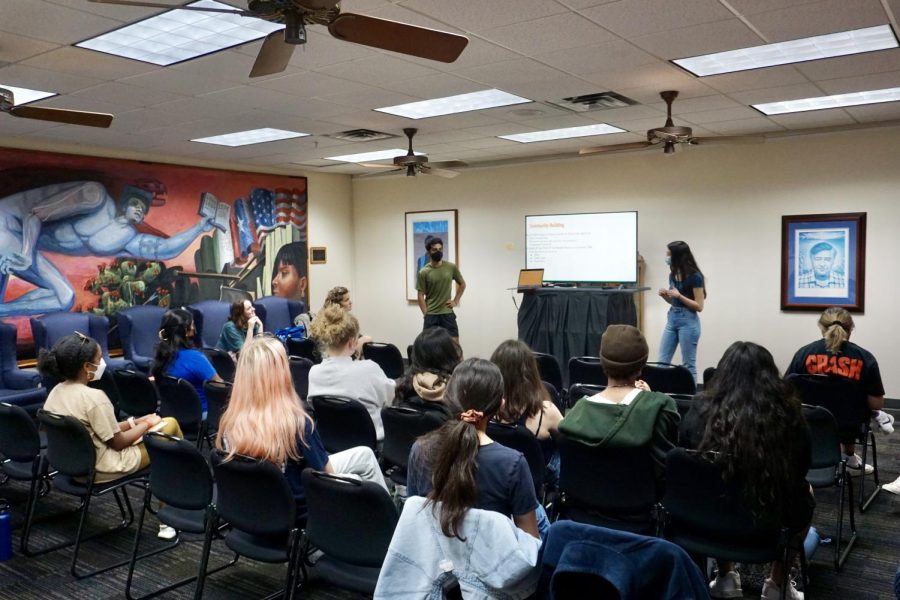Partners in Health Engage strives for healthcare education, holds upcoming rally
April 22, 2022
Editor’s Note: This article first appeared in the April 19, 2022 flipbook.
Sending off the final forms, Hailey Myers breathed out a sigh of relief. Reclining against her chair with a somber feeling of accomplishment, Myers launched her journey to bring health care advocacy and change to UT through the creation of an on-campus Partners in Health Engage Chapter in spring of 2020.
Partners in Health, a global organization, delivers quality, sustainable healthcare to underdeveloped countries by helping to foster a strong system from within through training local health professionals, offering housing and financial relief and working with community leaders to distribute resources. Like the various chapters all over the world, UT’s branch strives to raise money for the parent organization alongside advocacy work, such as promoting different policies and bills in their community.
“Partners in Health actually provides education, hiring locally within that community, and educating the people there,” Irin Toh, an international relations and global studies junior and Partners in Health member said. “They establish a long lasting health care system that (those communities will) be able to maintain without relying on us in the future.”
On April 27, the organization will hold a rally from 6 p.m. to 7:30 p.m. in the WCP assembly room. The event will include speakers Samantha Meyer, the founder of ATX mental health fund, Alexander L.Chu, a Dell medical student, and Dr. Rebecca Cook, a Dell Medical School professor, who will speak to the need for public health care education and global healthcare equity.
“The rally concern(s) the vaccine apartheid and global health disparities,” Myers, a biochemistry senior said. “(We’re) trying to educate our community, work with our peers and educate students. We want to teach them why these things matter.”
Because the organization started during the rise of COVID-19, Myers said disparities and inequality present in the healthcare system found their way to the forefront of global politics, prompting membership to increase. Instead of getting bogged down, Myers turned her frustration into action with Partners in Health, working to educate the public and advocate for health care legislation.
“We promote those bills and policies, ask (politicians) to sign (and) write Dear Colleague Letters to persuade their other representatives to sign on as well,” Myers said. “It’s not just about educating our community but putting pressure on our representatives.”
Toh said the group met with Representative Lloyd Doggett to promote the NOVID Act, which supports the allocation of vaccination resources to impoverished nations severely impacted by COVID, and PHISLA Act, which would allocate funding to public health departments to help them continue their fight against the pandemic and reconstructing the nation’s healthcare infrastructure.
Public health sophomore Ravi Parekh, said the chapter is currently focused on fundraising money to build the Maternal Center of Excellence, a health facility, which aims to address the high maternal mortality rates in Sierra Leone.
“We fundraise. We community build. Then we advocate,” Parekh said. “We interact with legislation, as well as representatives and host workshops where we draft an offense that we submit for review. Then, the community building aspect is really where we engage. The name says it itself, engages the community and educates people on the frontlines of health inequities.”












